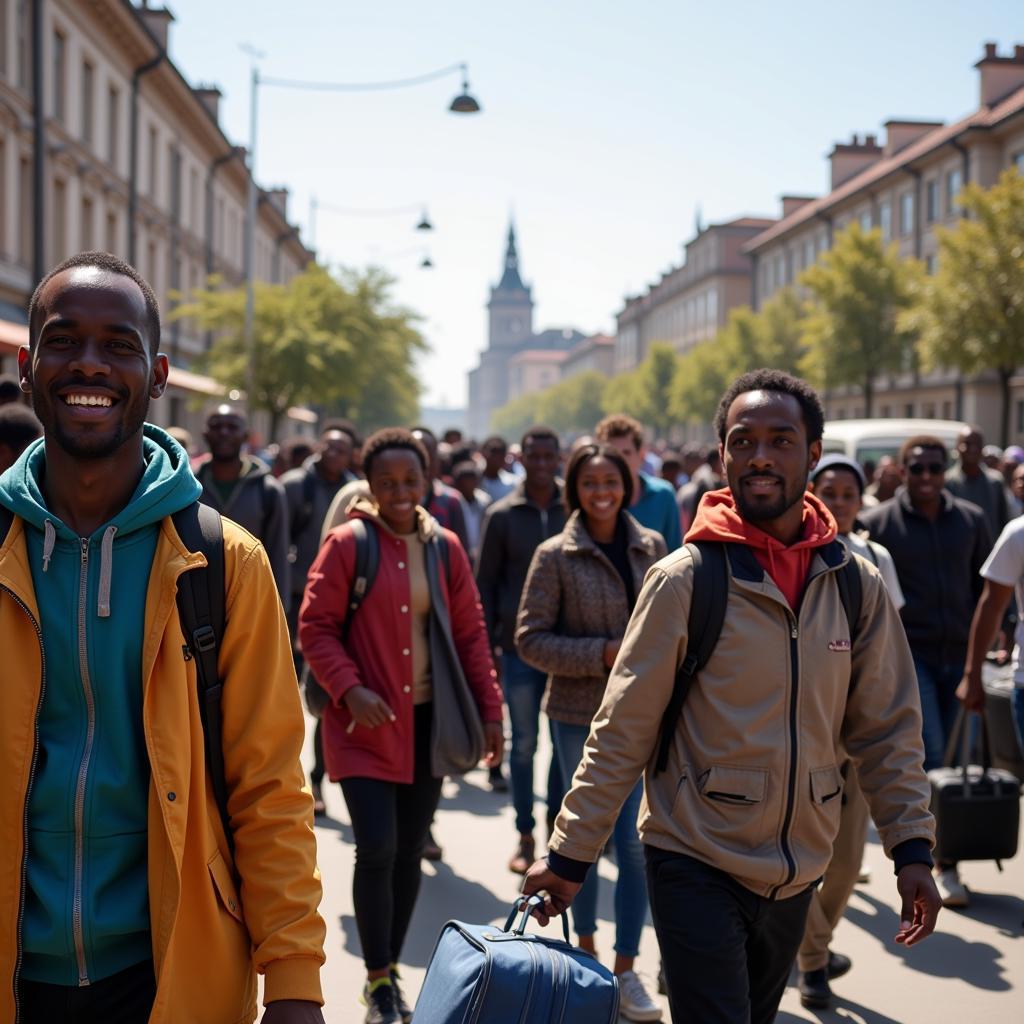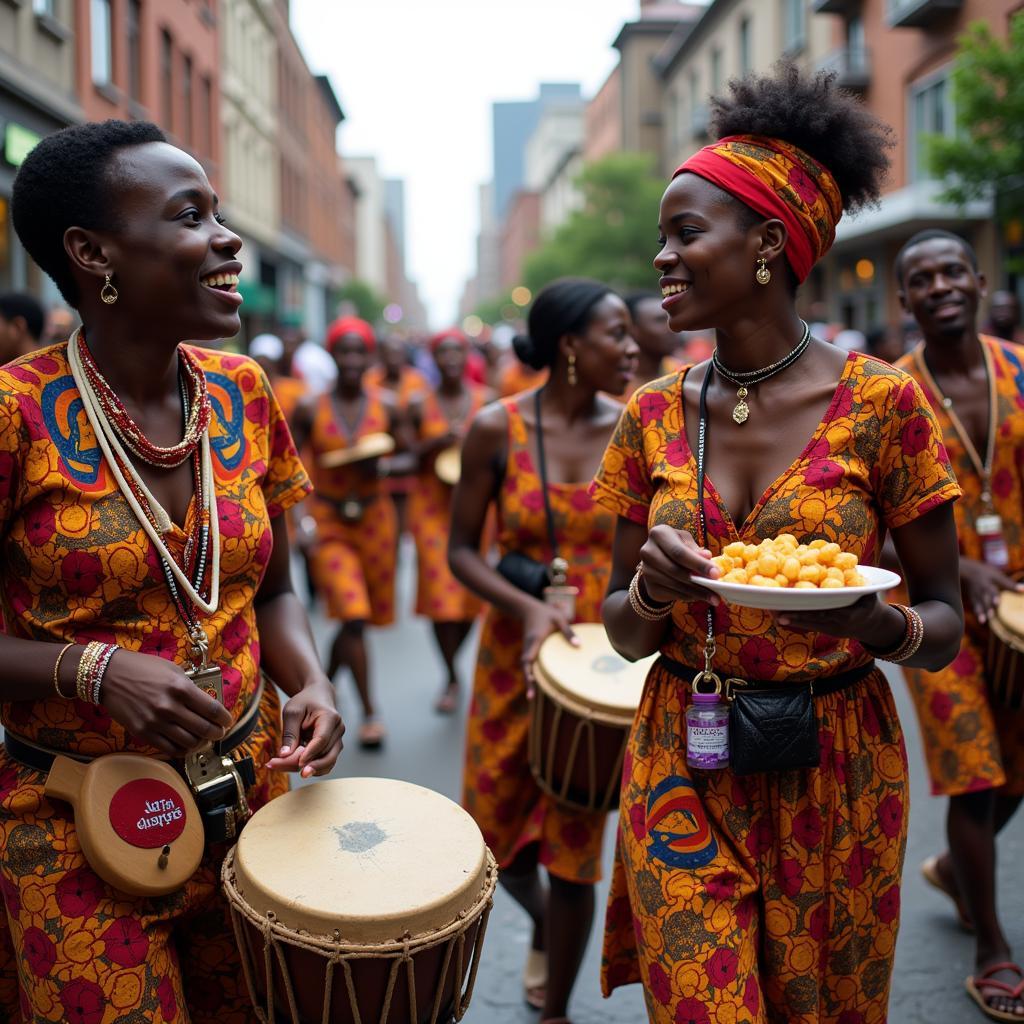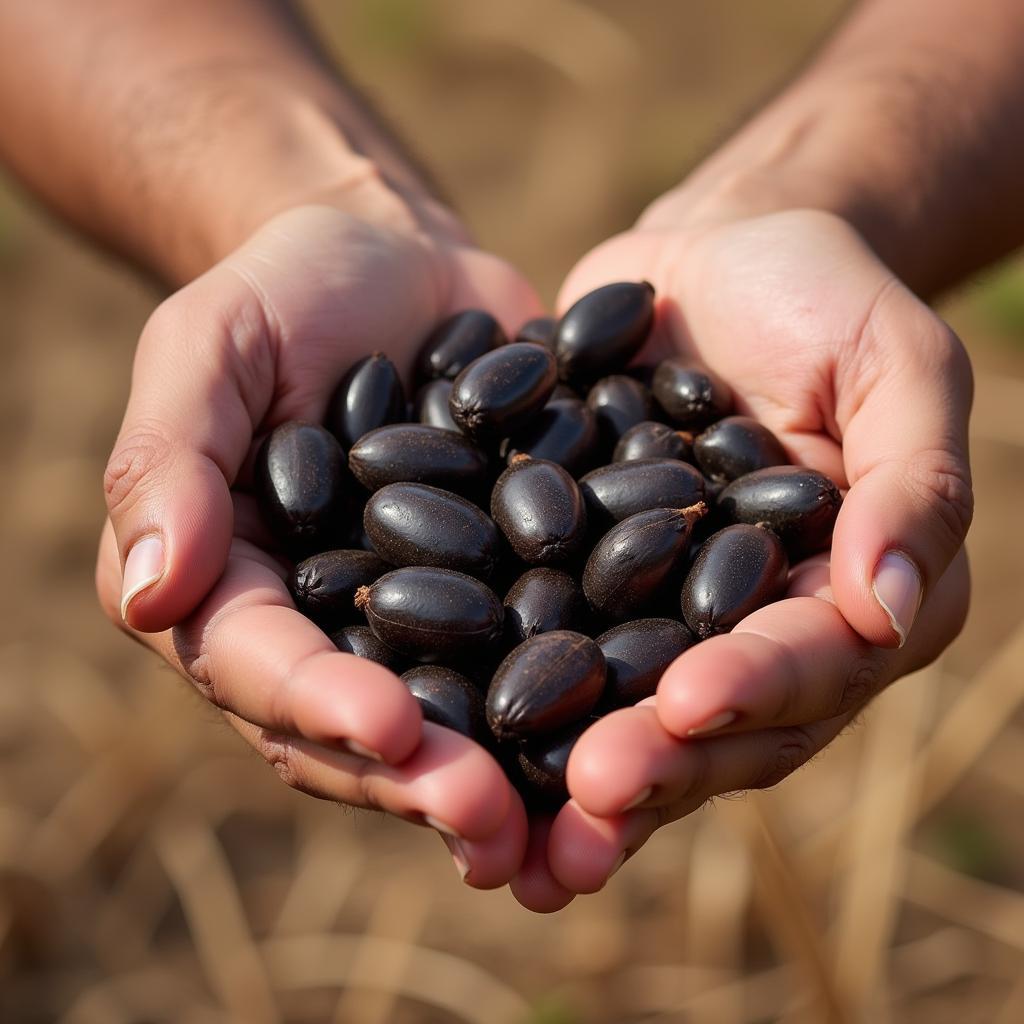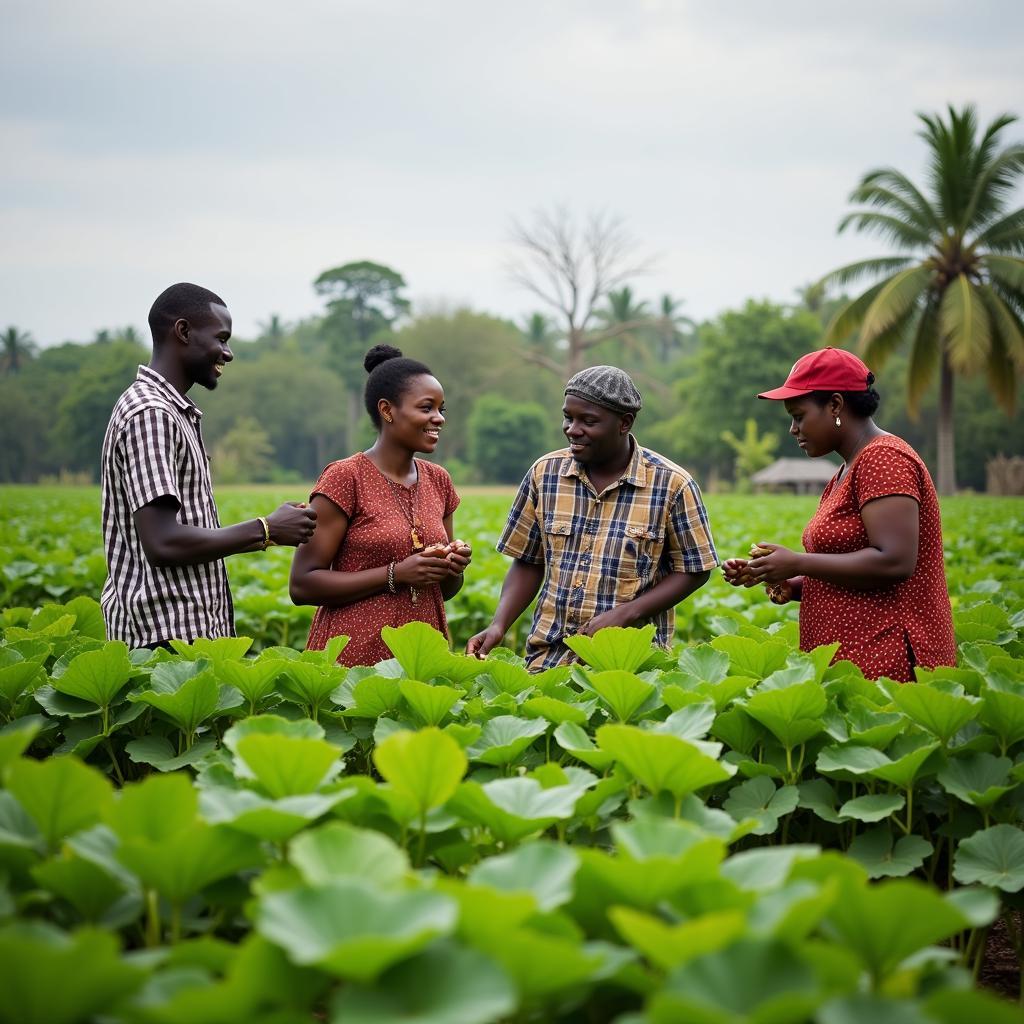African Indentureship and Migration: A Complex History
African Indentureship And Migration represent a significant, often overlooked, chapter in global history. This forced and voluntary movement of people from the African continent had a profound impact on societies across the globe, shaping cultural landscapes and leaving a lasting legacy. From the devastating transatlantic slave trade to the more recent waves of economic migration, this article explores the diverse motivations and consequences of African displacement.
Understanding the Nuances of African Indentureship
Indentureship, a system of labor binding individuals to a contract for a specific period, emerged after the abolition of slavery. While seemingly a step toward freedom, it often masked exploitation and hardship. Africans, seeking new opportunities or escaping difficult circumstances at home, signed contracts that often proved deceptive, leading them into conditions mirroring slavery. This system facilitated the movement of African labor to various parts of the world, including the Caribbean, South America, and the Indian Ocean islands, primarily to work on plantations. The conditions faced by indentured laborers were often brutal, marked by long hours, low wages, and limited rights. This period of forced migration played a crucial role in shaping the demographics and cultural dynamics of the regions where these Africans settled.
The Impact of Indentureship on African Culture
The cultural ramifications of indentureship are vast. African traditions, music, languages, and religious practices were transplanted and adapted in new environments, often blending with existing cultures to create unique hybrid forms. This cultural exchange, while born from hardship, has enriched the global tapestry.
Beyond Indentureship: Exploring Voluntary African Migration
While indentureship represents a dark chapter, African migration also encompasses voluntary movements of people seeking better lives. Economic opportunities, political instability, and environmental factors have driven many Africans to seek refuge or prosperity elsewhere. This voluntary migration continues to shape global demographics and intercultural exchange. The African diaspora, spread across continents, contributes significantly to the economic, social, and cultural landscapes of their adopted homes.
Economic Migration in Modern Africa
Modern African migration is often driven by the pursuit of economic advancement. The search for better jobs, higher wages, and improved living standards motivates many to leave their home countries for opportunities elsewhere, both within Africa and beyond. This movement of people contributes significantly to the economies of both sending and receiving countries.
 Modern African migrants seeking opportunities in Europe
Modern African migrants seeking opportunities in Europe
The Lasting Legacy of African Indentureship and Migration
The combined impact of indentureship and voluntary migration has indelibly shaped the world. From the cultural contributions to the economic shifts, the African diaspora has played and continues to play a significant role in global affairs. Understanding this complex history is crucial for appreciating the interconnectedness of societies and the enduring legacy of African resilience.
“Understanding the historical context of African migration, both forced and voluntary, is essential for addressing present-day challenges and building a more equitable future,” notes Dr. Abena Oduro, a prominent historian specializing in African diaspora studies.
Addressing the Challenges and Opportunities
The history of African indentureship and migration presents both challenges and opportunities. Acknowledging past injustices is crucial for reconciliation and building a more just future. Recognizing the contributions of the African diaspora and fostering inclusive societies are essential steps towards creating a world where everyone can thrive.
“Migration is a powerful force for change, and it’s important to harness its potential for positive development while mitigating the risks and vulnerabilities faced by migrants,” adds Dr. Kwame Asante, a leading expert on migration and development in Africa.
 African diaspora celebrating cultural heritage
African diaspora celebrating cultural heritage
Conclusion
African indentureship and migration, while originating from different motivations, are interwoven threads in the complex tapestry of human history. From forced labor to voluntary relocation, the movement of Africans across the globe has left an indelible mark on societies worldwide. By understanding this complex history, we can better appreciate the challenges and opportunities presented by migration and work towards a future where the rights and contributions of all people are recognized and valued. Remember, African indentureship and migration are not just historical events; they continue to shape our world today.
FAQ
- What is the difference between indentureship and slavery?
- What were the main destinations for African indentured laborers?
- How did indentureship impact African culture?
- What are the main drivers of modern African migration?
- How does the African diaspora contribute to global society?
- What are some of the challenges faced by African migrants today?
- How can we promote a more inclusive and equitable approach to migration?
Situations and FAQs
Scenario 1: I’m researching my family history and believe my ancestors were indentured laborers. Where can I find more information?
- Check online databases and archives related to indentured servitude.
- Contact historical societies and libraries in the regions where your ancestors may have lived.
Scenario 2: I’m interested in learning more about the cultural contributions of the African diaspora. What resources are available?
- Explore museums, cultural centers, and online resources dedicated to African diaspora studies.
- Attend cultural events and festivals celebrating African heritage.
Further Exploration
For more insights into African history and culture, explore other articles on our website:
- The Impact of Colonialism on African Societies
- The Rise of African Independence Movements
- Traditional African Art and Music
Contact Us
For further assistance, please contact us: Phone: +255768904061, Email: kaka.mag@gmail.com Or visit our office: Mbarali DC Mawindi, Kangaga, Tanzania. We have a 24/7 customer support team.

